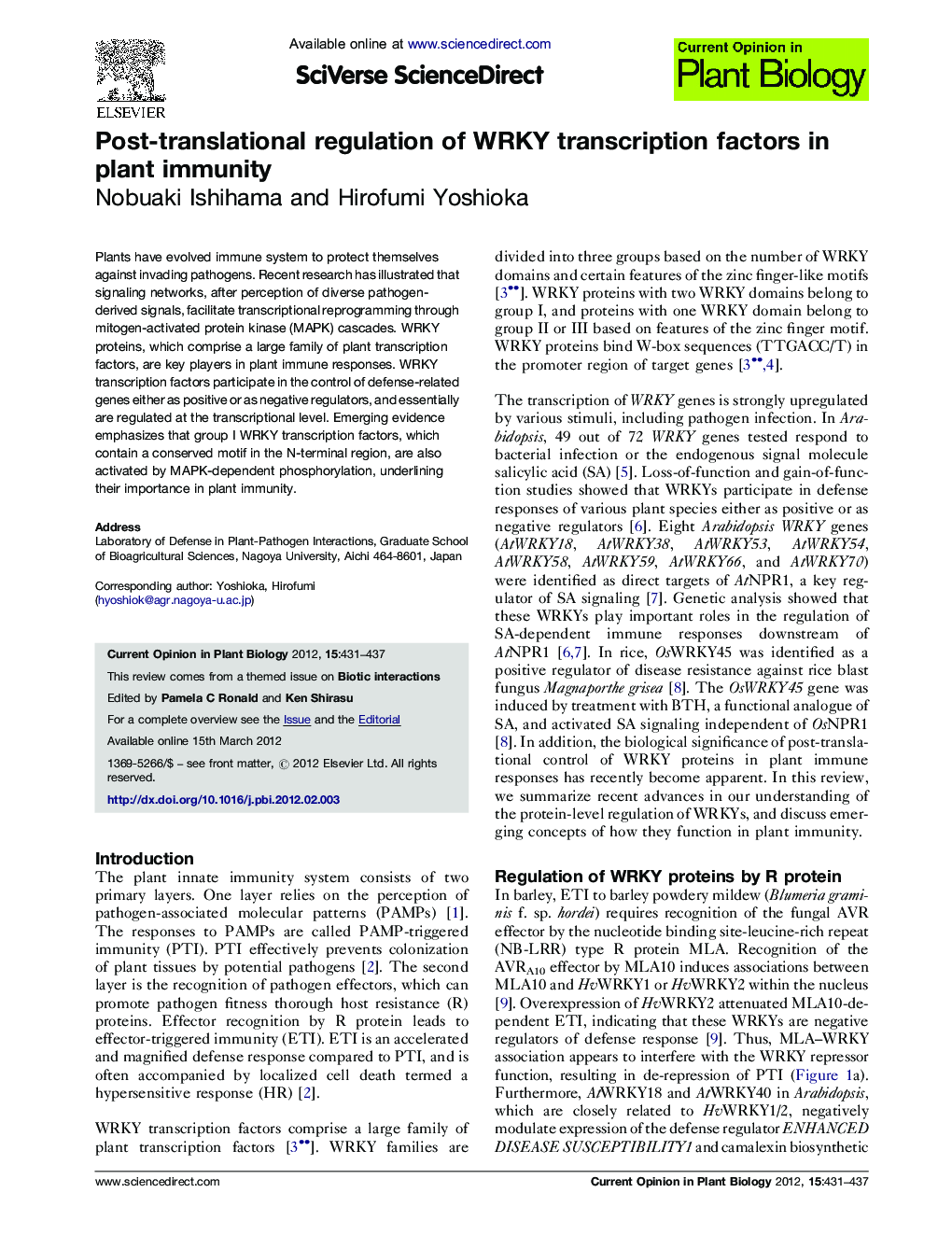| Article ID | Journal | Published Year | Pages | File Type |
|---|---|---|---|---|
| 2046133 | Current Opinion in Plant Biology | 2012 | 7 Pages |
Plants have evolved immune system to protect themselves against invading pathogens. Recent research has illustrated that signaling networks, after perception of diverse pathogen-derived signals, facilitate transcriptional reprogramming through mitogen-activated protein kinase (MAPK) cascades. WRKY proteins, which comprise a large family of plant transcription factors, are key players in plant immune responses. WRKY transcription factors participate in the control of defense-related genes either as positive or as negative regulators, and essentially are regulated at the transcriptional level. Emerging evidence emphasizes that group I WRKY transcription factors, which contain a conserved motif in the N-terminal region, are also activated by MAPK-dependent phosphorylation, underlining their importance in plant immunity.
► R protein–WRKY association interferes with the WRKY repressor function, resulting in effector-triggered immunity. ► Group I WRKY transcription factors, which contain a conserved motif in the N-terminal region, are activated by MAPK-dependent phosphorylation. ► MAPK substrates employ D-domain sequences to determinate the range of MAPKs and to promote MAPK-mediated phosphorylation.
